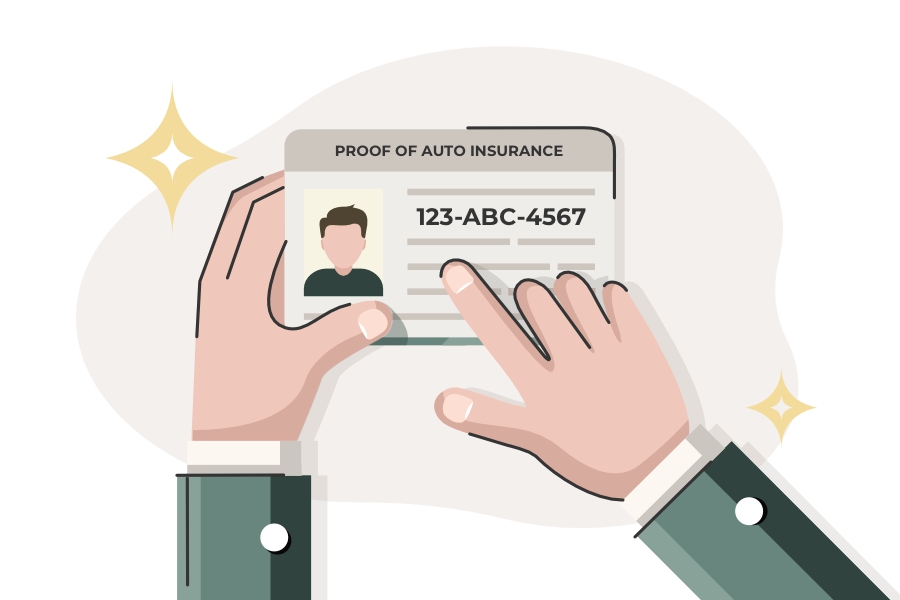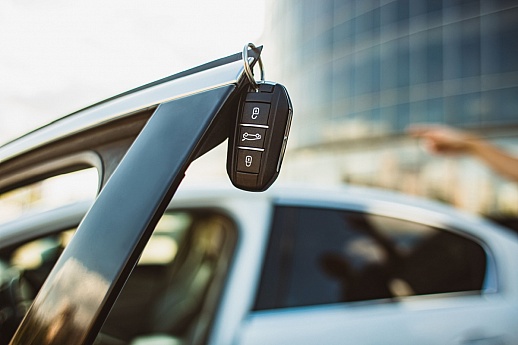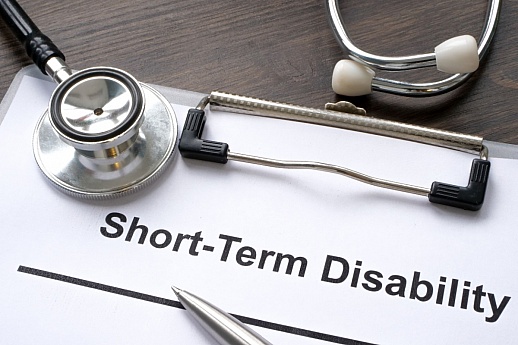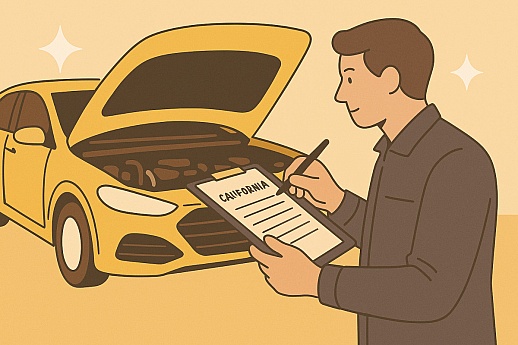What Is a Car Insurance Policy Number & How to Find It
Uh-oh. If you are asking about your car insurance policy number, something bad has probably happened. After all, the most common reasons for needing this number are accidents and traffic stops.
We are sorry that you find yourself in whatever situation you are in. We’ll do our best to help you make it through. Read on for answers to all your questions about your car insurance policy number.
What Is a Car Insurance Policy Number and Why Is It Important?
Your car insurance policy number is a special code connected to your car insurance policy that proves that you are insured. It is like a personal ID for your insurance agreement, given to you by your insurer.

Most states require minimum liability and bodily injury car insurance coverage. Failure to meet the minimum requirements can result in severe penalties for driving without insurance, like suspension of your license, fines, or even imprisonment.
This number may remain consistent as long as you stay with the same insurance company, regardless of whether you switch your car insurance or add more vehicles to your policy. However, you'll receive a new policy number if you switch insurers or renew a lapsed policy. If you move to a new state, you may also receive a new policy number even if you stay with the same insurer.
When Do You Need Your Policy Number?
Your policy number isn’t just for recordkeeping purposes for your insurance provider. There are several other instances where your car’s policy number will be needed:
- During an Accident: After a car accident, make sure you exchange insurance information with the other driver, including policy numbers. This is not just a legal protocol; it helps insurance companies process claims more quickly.
- Traffic Stops: If you get pulled over, the officer will want to see your driver's license, vehicle registration, and proof of auto insurance, which will include your policy number. This is a routine check to confirm that your car is insured as per the state's rules.
- Car Registration or Renewal: When it's time to register your car or renew its registration, you need to provide proof that it is insured. The DMV will request your policy number to confirm that your vehicle is insured according to state regulations.
How to Find Your Car Insurance Policy Number
Your car insurance policy number is most commonly found on your physical ID card, typically in the top corner. But there are more quick ways you can locate your car insurance policy number:
- Insurance ID Card: Many insurance providers are now offering digital ID cards. If you have the provider’s app, you can log on and access your card there or download it directly onto your smartphone.
- Policy Declaration Page: This document offers a comprehensive look at your coverage, including limits and other key details. When you first sign up for auto insurance, the provider will mail you a copy of this document, or you can opt to receive it electronically. Your policy number is clearly displayed at the top of this page.
- Online Account: If you've set up an online account with your insurer through their website or app, logging in is a quick way to get your policy details. Look for your policy number on the dashboard or under a section specifically for policy documents.
- Billing Statements: Look at your most recent insurance billing statement. The policy number is usually near the top or in a section designated for payment details.
- Contact Your Insurance Agent: If all else fails and you can't find your policy number, call your insurance agent. They'll help you out, but be ready to confirm your identity – they'll want to make sure they're giving the information to the right person.
Insurance Policy Number Example
Car insurance policy numbers typically range from 9 to 13 characters, mixing letters and numbers, and can include separators like dashes or spaces. Formats vary by insurer but usually start with letters followed by or interspersed with numbers. Examples include formats like "XYZ-9876543,” "123-ABC-4567,” or "R1S3T2456789.”
How to Look Up Someone Else’s Car Insurance Policy Number
Finding someone else's insurance policy number isn't possible because of privacy laws. But there are times, like after a car accident, when you might genuinely need to know it. Normally, you'd exchange insurance details right there at the scene of the accident. But what if it's a hit-and-run and you don't get that chance?
You might need to track down the other driver's insurance information in such cases. Here's what you can do:
- File a Police Report: Police can use the information you provide, including vehicle description and license plate number, to track down the other driver's insurance details.
- Contact the DMV: The DMV can verify insurance coverage if you provide a valid reason and sufficient details about the vehicle, such as the VIN.
- Reach Out to Your Insurance Company: You can also reach out to your insurance provider and give them details you were able to recover, such as the VIN or license plate number. They may be able to look up the other driver’s insurance number.
What to Do if You Lost Your Policy Number?
It’s common practice for most drivers to keep their insurance cards in their vehicle’s glove compartments, as it is one of the most essential things to keep in your car. Others may prefer to carry it in their wallets. But what happens if you lose your wallet or your car is broken into?
If someone gets their hands on your insurance card, they could use it to make fake claims under your name. If you’ve lost your insurance card, you should contact your insurance provider immediately to report the loss. You can reach them by phone, website, or app.
Since your policy number is compromised, your provider will issue you a new one and send you a replacement card. While you wait for your physical card to arrive, your insurance company will send you a temporary one digitally or on their app.
You should print the temporary card or download it onto your phone until your physical one arrives.
How to Protect Your Insurance Identity
Losing your insurance card and having to get a new policy number is a hassle. Here’s how you can better protect your insurance identity going forward:
- Vehicle Security: If you’re like most drivers and keep your insurance card in your car, always lock your vehicle, activate the alarm system, and park in secure, well-lit areas to avoid break-ins and theft.
- Securely Store It: Some car models let you lock your glove compartment using the ignition key for added in-car safety. This way, even if someone gets past your vehicle’s safety features, they still won’t be able to access your insurance card in the locked compartment.
- Use Digital Options: Many insurance companies are switching to digital and in-app insurance cards. These options can be more secure because your information is protected by two-factor authentication (2FA), your phone’s password, and face recognition.
- Use Encryption: For added digital security, you can encrypt your smartphone or download apps that automatically encrypt your files. With this added safety measure, someone who gets past your face recognition or password will still likely be unable to access your insurance card.
- Beware of Phishing Attempts: Stay alert to emails or phone calls that request your insurance details. Scammers often impersonate legitimate institutions like insurance companies or the DMV to gain access to personal information. Verify the authenticity of these requests by contacting the organizations directly through official channels.
Sum-Up
Your car insurance policy number is more than just a personal identifier that links you to your policy. It is necessary in various scenarios, and losing it could put you at risk for identity theft and false claims.
To protect your personal insurance information, go the extra mile and store your insurance card safely in your vehicle and digitally.
FAQ
The section below addresses some additional questions about your car insurance policy number:
Is My VIN the Same as My Insurance Policy Number?
No, your Vehicle Identification Number (VIN) and insurance policy number are different. The VIN is a unique 17-digit number assigned to your vehicle by its manufacturer for identification purposes. Your insurance policy number, however, is specific to your insurance contract and is used to manage your coverage.
Is My Insurance Policy Number the Same as My AAA Membership Number?
No, these numbers are different. Your AAA membership number is used for your AAA account and services, while your insurance policy number is specific to your insurance policy, even if it's through AAA.
Where Should I Keep My Car Insurance Policy Number?
It's best to keep your policy number accessible yet secure. You should carry a copy of your insurance ID card, which includes your policy number, in your vehicle and another copy in your wallet or stored digitally on your smartphone. Also, keep a copy in your home records and any relevant digital accounts for easy access.
If More Than One Person is On My Insurance Policy, Do We Each Get a Unique Number?
Usually, a single policy number covers all vehicles and drivers listed on the policy. However, each vehicle or driver may have specific identifiers linked to the main policy number for clarity and recordkeeping.
Is My Policy Number Needed if Someone Else Drives My Car and is Involved in an Accident?
Yes. If someone else is driving your car with your consent and is in an accident, they will need to provide your insurance information and number for the claim.
What Should I Do if I Notice an Unauthorized Transaction or Claim on My Insurance Using My Policy Number?
Immediately contact your insurance provider to report that you did not file the claim. Be sure to provide supporting evidence and documentation. The insurance company will likely initiate an investigation.
If the provider determines that the claim was fraudulent, they will provide you with a new policy number.
Sources
- Ag Workers. "Auto ID Card: Everything You Need to Know." Accessed April 29, 2024.
- District of Columbia Department of Insurance, Securities and Banking. "What to Know About Your Insurance After a Car Accident." Accessed April 29, 2024.
- American Association of Motor Vehicle Administrators. "What to Do When Stopped by Law Enforcement." Accessed April 29, 2024.
- Office of the Attorney General of Texas. "Help Prevent Identity Theft." Accessed April 29, 2024.



